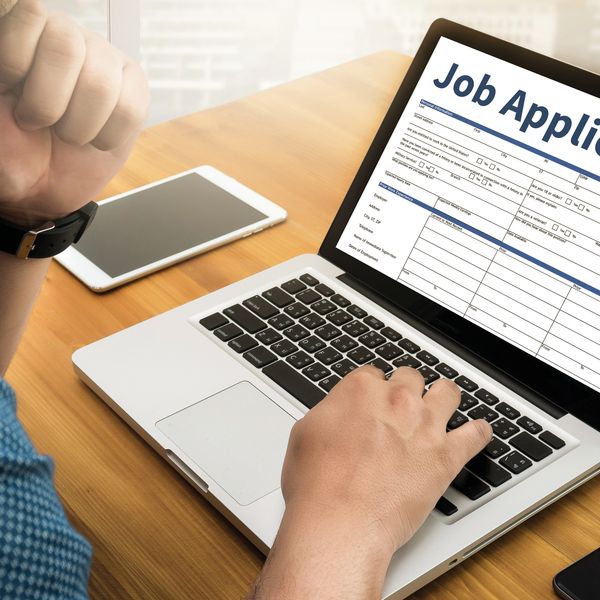Check yourself before ordering a background check
Employers may order background checks on prospective employees to protect their organization, but need to make sure the way they use them doesn’t violate the law. That means they must exercise caution to avoid violating the Fair Credit Reporting Act (FCRA) as well as state background check laws.
Even if a company uses a background check provider, also called Consumer Reporting Agency (CRA), the burden of proof against any discrimination claims is on the employer.
Here are 7 tips for staying in compliance with background check laws:
- Remove questions about criminal convictions from job applications. Thirty-seven states have public sector ban-the-box laws, which prohibit a job application from asking about (or containing a check-box relating to) criminal convictions. Private employers are covered by ban-the-box laws (also called fair chance laws) in 15 states. Even if the state you are hiring in doesn’t, it is a best practice to remove questions about criminal convictions from job applications. Employers should also not ask for an applicant to consent to a criminal background check on the application.
- Do not include a waiver of rights with or on job applications. The FCRA requires that consent to run a background check be obtained on FCRA compliant documents, not on a job application. Also, do not ask job applicants to give up their rights in any way that relates to their personal information and/or how it’s used.
- Avoid stigmatizing language in job ads, such as “clean background only.” Do not include blanket statements such as “No felons” or “Applicants with criminal records will not be considered.” Employers cannot automatically exclude applicants with criminal records. It is okay to use language such as, “We conduct background checks as part of our pre-employment screening process and follow all EEOC and FCRA regulations regarding the use of criminal records in the hiring process.”
- Do not ask about convictions during an interview. A best practice is not to ask at all about an applicant’s arrest or conviction record. The background check will find any criminal records and provide specific information regarding any convictions.
- Make the job offer first. Only run a background check after a conditional offer of employment has been made.
- Do not hire before the background check is back. Having an employee begin orientation or start work before the background check is back, and then firing them if something turns up on the check can be grounds for a lawsuit. Even if the job offer said in writing that it was contingent on the applicant passing a background check, the person may have turned down another job offer and could claim wrongful termination.
- Make sure to use all the right forms. Two forms are always needed; sometimes three or more are required. They may include the:
- Disclosure form (also called consent to background check form). This says clearly that a consumer report may be obtained for employment purposes. It must be an individual stand-alone document. It is signed and returned by the applicant.
- FCRA compliance form. This separate form must be given to an applicant if an employer is having a screening firm do a reference check or an employment verification. Applicant signs and returns.
- Applicant authorization and acknowledgment form. The employer obtains an applicant’s permission to run the background check on this form. The first two forms are simply sharing or disclosing information, not obtaining permission. The applicant signs and returns.
- Other state/local law notices. State or local laws may also apply and could require an employee notice. Employers operating in more than one state may have additional notification requirements.
- Summary of Your Rights Under the FCRA. This document comes from the Consumer Financial Protection Bureau.
- Background information form. This is sometimes used to collect candidate information for entering the background check. It is not necessary to provide a form, however. Information may be collected online.
- Credit notice. A separate notice is required in California and Vermont if an employer runs credit reports. If a credit report is not being run, do not provide a credit notice or include credit report information in the forms packet.
Don’t ask for more than is needed
An employer should not order a Motor Vehicle Report (MVR) when hiring for a non-driving position. Employers don’t have a right to see someone’s driving record if the job does not involve driving. Do not ask for driver’s license number or state on the application for non-driving positions.
In addition, employers should follow the Equal Employment Opportunity Commission (EEOC) “Enforcement Guidance on the Consideration of Arrest and Conviction Records in Employment Decision under Title VII of the Civil Rights Act” which discourages blanket exclusions of individual who have been convicted of offenses and emphasize that employers should determine on a case by case basis if a criminal conviction is job related and consistent with business necessity.
Key to remember: Even when a CRA is used, the buck stops with the employer when it comes to responsibility for taking employment actions based on something found in a background check. Employers must make sure their job ads, interviews, offers of employment, and background check processes follow all relevant federal and state laws.























































